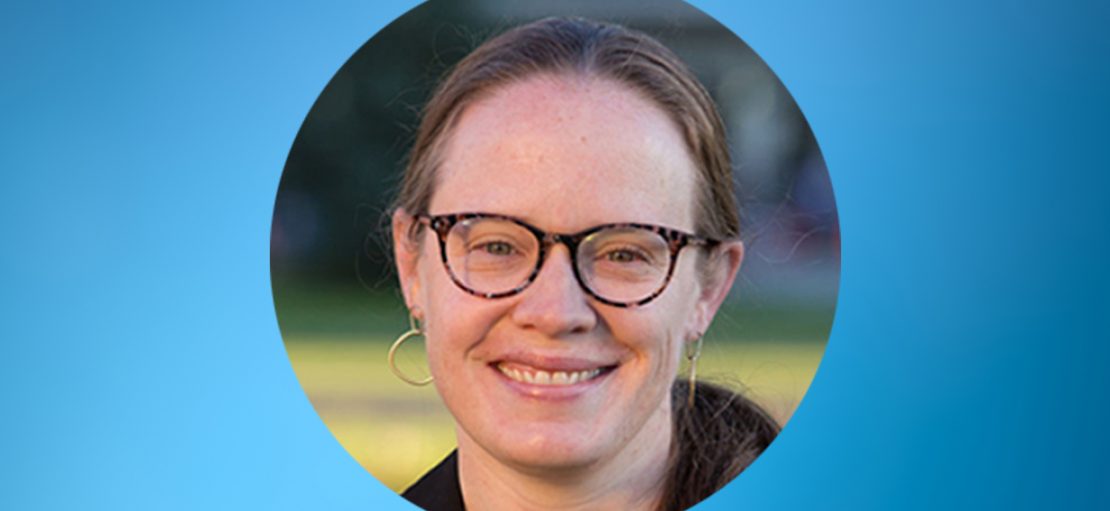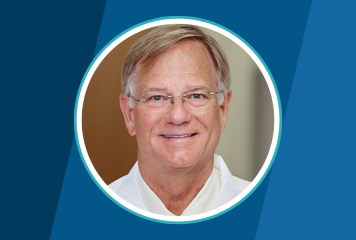Carolyn Leftkowits, MD, MPH, MS, is an Associate Professor at the University of Colorado School of Medicine, jointly appointed in the Department of Obstetrics and Gynecology, Division of Gynecologic Oncology, and the Department of Internal Medicine, Division of Palliative Medicine. She serves as the Vice Chair of Education for the Department of Obstetrics and Gynecology and the Fellowship Director for the Gynecologic Oncology Fellowship. She is board certified in Obstetrics and Gynecology and Gynecologic Oncology through the American Board of Obstetrics and Gynecology (ABOG) and in Hospice and Palliative Medicine through the American Board of Internal Medicine (ABIM). Dr. Leftkowits joined the Hospice and Palliative Medicine Traditional, 10-Year Maintenance of Certification (MOC) Exam Approval Committee in July 2024.
Can you talk about your journey to becoming a physician, and particularly why you chose hospice, palliative medicine, OB-GYN and oncology as specialties?
My parents are both high school teachers, so I like to think I have followed in their education footsteps, just along a slightly different path to being an educator.
I have always been drawn to meaning-making in medicine and curious about how patients and families navigate some of the larger, sometimes existential questions that can come up in the face of serious illness. I spent a summer as a hospital chaplain intern during medical school and that only deepened that interest for me.
So, when I entered OB-GYN residency drawn toward the broad scope of women’s health provided in OB-GYN, I was drawn early on to oncology as a specialty where patients and families navigate serious illness with a really unusual level of continuity with their doctors. In gynecologic oncology, unlike other oncologic specialties, we provide both medical and surgical oncology. So, the same doctor that does a patient’s ovarian cancer surgery also gives her chemotherapy and so takes care of that patient and family from diagnosis through the entire course of her disease, and often through the end of her life.
At the time I was training, the unspoken expectation seemed to me that to be a gynecologic oncologist you had to love it primarily for the surgery, so initially I thought it would not be a good fit for me. It wasn’t until I found palliative care as a specialty and connected with palliative care teams that helped validate palliative care as a routine part of oncology care and the importance of dimensions of care and support that really center on quality of life that I thought gynecologic oncology might be the path for me. As long as I could combine it with palliative care.
Thanks to the flexibility and innovative thinking of the faculty at the University of Pittsburgh, I had the opportunity to be the first physician nationally to become fellowship trained in both hospice and palliative medicine and gynecologic oncology. Along the way, my passion for education only grew. I got a master’s degree in medical education during my training and I am particularly passionate about education at the intersection of hospice and palliative medicine and oncology, as well the intersection of hospice and palliative medicine and surgical specialties more broadly. So, I am also very grateful to ABIM for the opportunity, particularly as an oncologist and a surgeon, to be involved with the Hospice & Palliative Medicine Traditional, 10-Year MOC Exam Approval Committee. I do think that having a diversity of medical specialties represented among hospice and palliative medicine physicians and committees like this one only enhances the specialty.
What do you find most rewarding about your work? What do you find challenging?
Most rewarding: longitudinal relationships with patients and families. Most challenging: longitudinal relationships with patients and families in a patient population where a lot of my patients die. It is an honor and a privilege and incredibly rewarding to take care of patients from the time of diagnosis through surgery, chemotherapy and recurrences, and end-of-life. And, emotionally, it’s hard to lose so many patients who I had become so attached to.
I enjoy the technical aspects of surgery. In our specialty, we do cure a lot of, for example, endometrial cancer, and it can also be very rewarding to see patients who I operated on five years ago reach the point where we consider them cured and they go on about their lives with cancer in the rearview mirror.
I enjoy the variety that comes with practicing medical oncology, surgical oncology, and hospice and palliative medicine. I like having some patients and families where I act purely as their palliative care doctor, without the responsibility for their disease-directed therapy and where I can really focus on the palliative aspects of their care
Finally, being an educator is one of the most rewarding aspects of my work. Having the opportunity to impact the professional formation of trainees is pretty special. And I particularly enjoy the opportunity to incorporate aspects of palliative care into the training of my oncology fellows in a way that wasn’t routinely done when I was training. I don’t ever want them to think you have to love gynecologic oncology just for the surgery.
What might a lot of people miss or not realize about gynecologic oncology?
Probably the fact that, as I mentioned, at least in some gynecologic oncology practices you can have the same doctor do your surgery and your chemotherapy, so you really have that continuity of care that I sometimes worry is becoming less common in medicine.
How has certification in these specialties shaped your career and the way you care for patients?
I’d be hard pressed to articulate a way in which certification in this combination of specialties hasn’t shaped the way I care for patients! I made a conscious choice to train in palliative care first in hopes of having palliative care skills and attitudes infuse everything about my professional development as an oncologist, as opposed to training as an oncologist and then acquiring palliative care skills and perspectives that I had to try to backfill into existing oncology practice patterns—I think that worked out the way I had hoped. Palliative care, with a focus on the importance of communication and support of patients and families and attention to quality of life, definitely informs every aspect of my practice as an oncologist. Though I still utilize specialty palliative care referral for my oncology patients because I think having a separate team focused purely on the palliative aspect of oncology care is always value added, in my own practice I think palliative care and oncology care are constantly woven together.
In terms of career path, the intersection of palliative care and gynecologic oncology has become essentially a scholarly niche for me and my focus as an educator.
What’s something fundamental to your practice and patient interactions that can’t be taught, or that you want to teach everyone else?
I’d like to teach everyone that communication skills are teachable. Skilled communication particularly in high stakes situations in oncology like conversations about prognosis or end-of-life transitions has sometimes been written off as something that you’re either good at or you’re not. And I worry that if we don’t recognize that high-stakes communication can be broken down into teachable skills, just like surgery, that we abdicate responsibility for including the teaching of those skills in medical training and fail to set our trainees up for success in one of the more challenging—but also potentially the most rewarding—aspects of caring for patients and families with cancer.
What interested you in joining the Approval Committee? What are you most hoping to contribute?
As a clinician, I’m excited to work with a group of physicians with diverse clinical backgrounds, from a variety of specialties, who have a shared expertise in and passion for palliative care.
As an educator, I’ve done some work on board exam question creation and administration of oral board exams for the ABOG, and I was particularly excited to get involved with a different board because I’m curious about how the process of board examination and Maintenance of Certification is both the same and different between the two boards. I’m looking forward to learning a lot from ABIM and my colleagues on the Approval Committee.
What are some of the things you look for in an exam question that make it most valuable? What specific to gynecologic oncology is important to incorporate when writing an exam question?
Valuable questions manage to discriminate between learners, meaning not so easy that everyone gets them right or so hard that nobody knows what to do with them. I also think, ideally, we land right at the growing edges of an examinee’s knowledge or clinical assessment or judgment such that examinees have to really put in effort and stretch their thinking, challenge themselves and hopefully learn in the process.
What do you most want ABIM diplomates to know about you and what’s important to you?
I’m so grateful for the opportunity to get involved with ABIM and specifically for ABIM’s willingness to include and welcome someone like me who did not train specifically in internal medicine. I think it reflects a recognition that we are all stronger together when we collaborate across specialties and learn from each other, which is something that I believe deeply.



